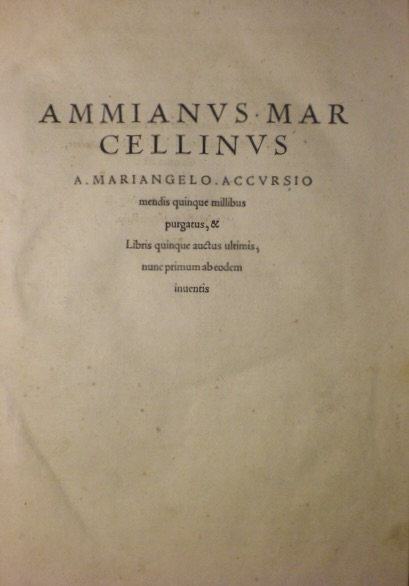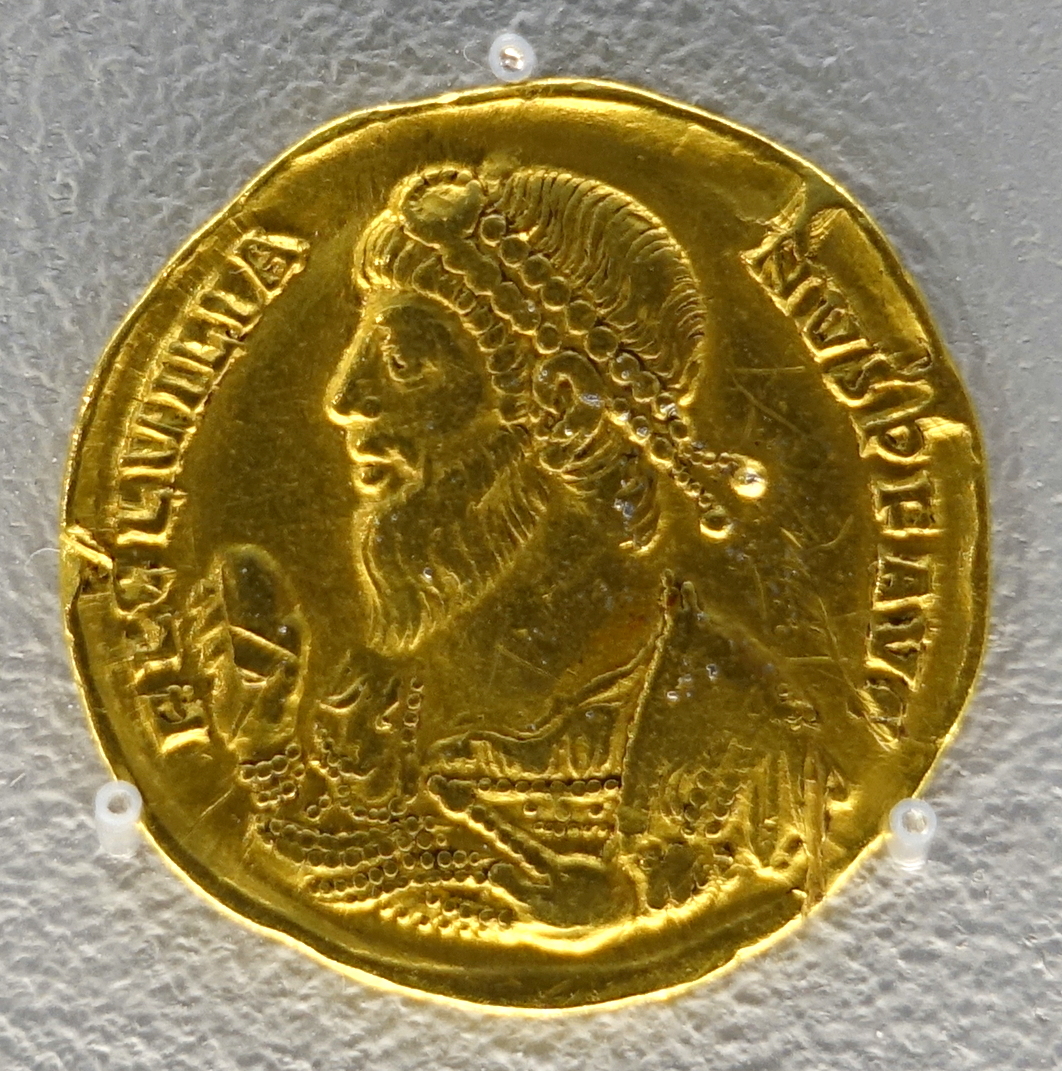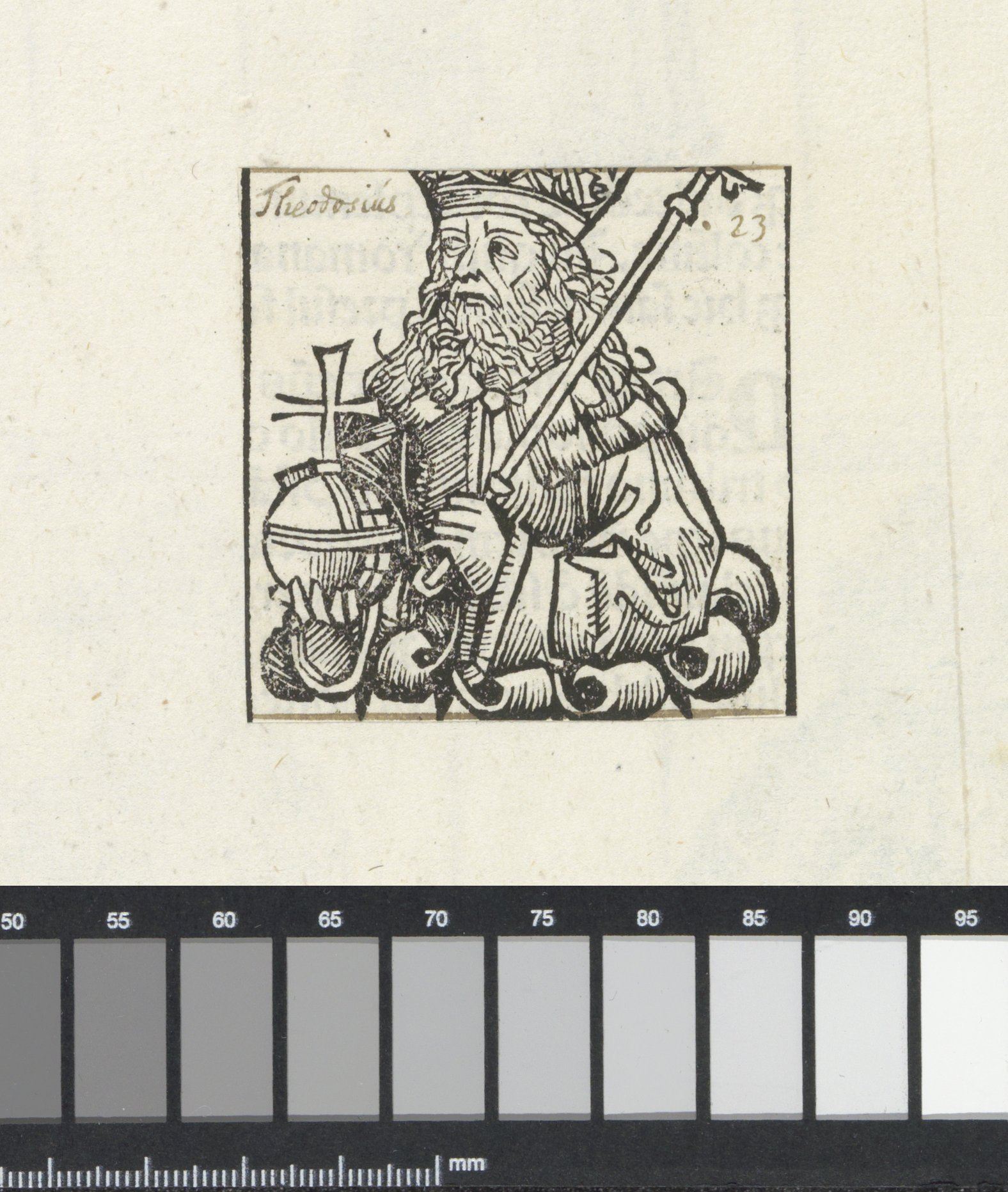Introduction – Ammianus Marcellinus: A Historian in a Time of Crisis
Ammianus Marcellinus was one of the last great voices of classical Roman historiography. A former soldier and eyewitness to the turmoil of the late fourth century, he chronicled the inner workings of an empire in transition, weakened by military disasters, political intrigue, and cultural transformation. As a pagan Greek writing in Latin during a time of growing Christian dominance, Ammianus Marcellinus bridges the world of Tacitus and Thucydides with that of later medieval chroniclers. His surviving work, Res Gestae, remains one of the most vital sources for understanding the final century of the Western Roman Empire.

Life of Ammianus Marcellinus
Ammianus was born around 330 AD in Antioch, one of the Roman East’s most prosperous and cosmopolitan centers. Though ethnically Greek, he wrote in Latin, the official administrative language of the empire. His exact social status is debated, but he likely belonged to the eastern provincial elite.
He entered military service as a young man, probably under the reign of Constantius II. He served as a protector domesticus and took part in numerous campaigns. His military assignments brought him across the eastern provinces, from Persia to Egypt, and as far west as Gaul. Most famously, he fought in the defense of the city of Amida in 359, a brutal siege by the Persian Sassanids, which he vividly recounts in his history.
Ammianus’s career also brought him into the inner circles of imperial politics. He served under Ursicinus, a high-ranking general, and was closely associated with the emperor Julian, known as “the Apostate” for his efforts to restore paganism. After his retirement from the army, Ammianus settled in Rome and dedicated himself to writing Res Gestae, his great historical opus.
The Res Gestae: structure and scope
Ammianus’s Res Gestae (“The Deeds”) was conceived as a continuation of the Annals and Histories of Tacitus. It originally consisted of 31 books covering the years 96 to 378 AD. Unfortunately, only the final 18 books survive, spanning the years 353 to 378. These decades were marked by mounting internal instability, the death of Julian, and the catastrophic defeat at the Battle of Adrianople.
The work combines military, political, and social history, with particular attention to the eastern provinces. Ammianus shows interest not just in emperors and generals but also in administrators, urban culture, and the struggles of ordinary people. His narrative is not annalistic but thematic, and he digresses often to provide background, description, or commentary.
While many Roman historians limited themselves to Rome and Italy, Ammianus offers a broader imperial perspective. His accounts of cities like Antioch, Alexandria, and Amida reveal the diversity and challenges of ruling such a vast domain. He is especially valuable for the history of the eastern frontier and the conflicts with the Sassanid Empire.

Ammianus Marcellinus as a soldier-historian
One of the defining features of Ammianus’s work is his perspective as a soldier. Unlike many aristocratic Roman historians, he writes from personal experience on the battlefield. This gives his descriptions of warfare, fortifications, and logistics a level of detail rarely found in ancient sources. His account of the siege of Amida is one of the most harrowing depictions of ancient siege warfare, combining tactical analysis with raw emotion.
Yet Ammianus does not glorify war. He frequently laments the cruelty and chaos of the battlefield, the arrogance of incompetent commanders, and the suffering of civilians. His background lends credibility and urgency to his narrative: he is not merely reporting events but reliving them.
A critical yet loyal Roman
Although a loyal Roman, Ammianus Marcellinus was not a blind patriot. He sharply criticized the decadence of the Roman aristocracy in Rome, especially their obsession with spectacle and fashion. In one famous passage, he contrasts their opulence with the stoic discipline of earlier times, lamenting the moral decay of the elite.
His criticism extended to imperial governance. He had little patience for corrupt officials or weak emperors. Yet he reserved admiration for figures like Julian, whom he praised as an ideal ruler—brave, philosophical, and committed to reform. His admiration was rooted in shared values: Julian, like Ammianus, sought to revive the virtues of classical Rome and resist what they saw as cultural decline.
At the same time, Ammianus Marcellinus maintained a fundamentally conservative worldview. He distrusted radical change and valued order, discipline, and tradition. His writing reflects the tensions of a world where ancient norms were being reshaped by new forces—military, religious, and political.
Pagan identity in a Christian empire
Ammianus is especially notable for being a pagan writing in an increasingly Christian empire. By the time he composed Res Gestae, Christianity was the dominant religion of the Roman world, and emperors like Theodosius I would soon make it the empire’s official faith.

Despite this, Ammianus rarely attacks Christianity directly. His approach is generally one of cautious neutrality. He condemns religious violence and criticizes some Christian officials, but he also praises Christian virtues like charity and moral discipline. Unlike earlier pagan writers who denounced Christianity as a threat to the state, Ammianus Marcellinus takes a more nuanced position.
His religious moderation is perhaps best explained by his personal admiration for Julian. Though Ammianus did not share Julian’s zeal for restoring paganism, he appreciated the emperor’s philosophical outlook and commitment to tolerance. For Ammianus, religion mattered, but it was not the central axis of his historical judgment.
The style and influence of Ammianus Marcellinus
Ammianus’s Latin style has often been described as dense, elaborate, and sometimes archaic. His sentences can be long and intricate, filled with rhetorical flourishes and digressions. While this makes him a challenging author for modern readers, it also reflects his ambition to emulate the great historians of the past.
He drew inspiration from Tacitus, and both historians share a taste for psychological insight, dramatic narrative, and moral commentary. However, Ammianus was more empirical and less cynical than Tacitus. He valued clarity over insinuation and tended to explain rather than condemn.
Though his influence waned in the Middle Ages, Ammianus was rediscovered during the Renaissance and admired by humanist scholars. Today, he is seen as the most important Roman historian of the fourth century, and perhaps the last truly classical historian before the traditions of antiquity gave way to the chronicle literature of the medieval world.
Legacy and historical importance of Ammianus Marcellinus
Ammianus Marcellinus occupies a unique place in Roman historiography. As a soldier, a provincial, a pagan, and an intellectual, he represents a multifaceted voice in a time of imperial transformation. His Res Gestae offers not only a detailed chronicle of late Roman history but also a deeply personal vision of what it meant to witness the end of an era.
His value as a source is immense. Modern historians rely on Ammianus Marcellinus for information on imperial politics, frontier warfare, the administration of justice, and the daily life of the late Roman world. Without his work, much of what we know about the reigns of Constantius II, Julian, Valentinian, and Valens would be lost.
In a time when the classical world was dissolving into something new, Ammianus Marcellinus captured its final chapters with passion, clarity, and intelligence. His legacy endures not only in what he recorded but in the spirit of critical inquiry he brought to a world on the edge of transformation.
Hello, my name is Vladimir, and I am a part of the Roman-empire writing team.
I am a historian, and history is an integral part of my life.
To be honest, while I was in school, I didn’t like history so how did I end up studying it? Well, for that, I have to thank history-based strategy PC games. Thank you so much, Europa Universalis IV, and thank you, Medieval Total War.
Since games made me fall in love with history, I completed bachelor studies at Filozofski Fakultet Niš, a part of the University of Niš. My bachelor’s thesis was about Julis Caesar. Soon, I completed my master’s studies at the same university.
For years now, I have been working as a teacher in a local elementary school, but my passion for writing isn’t fulfilled, so I decided to pursue that ambition online. There were a few gigs, but most of them were not history-related.
Then I stumbled upon roman-empire.com, and now I am a part of something bigger. No, I am not a part of the ancient Roman Empire but of a creative writing team where I have the freedom to write about whatever I want. Yes, even about Star Wars. Stay tuned for that.
Anyway, I am better at writing about Rome than writing about me. But if you would like to contact me for any reason, you can do it at contact@roman-empire.net. Except for negative reviews, of course. 😀
Kind regards,
Vladimir
